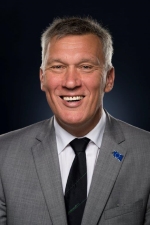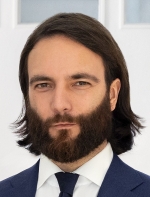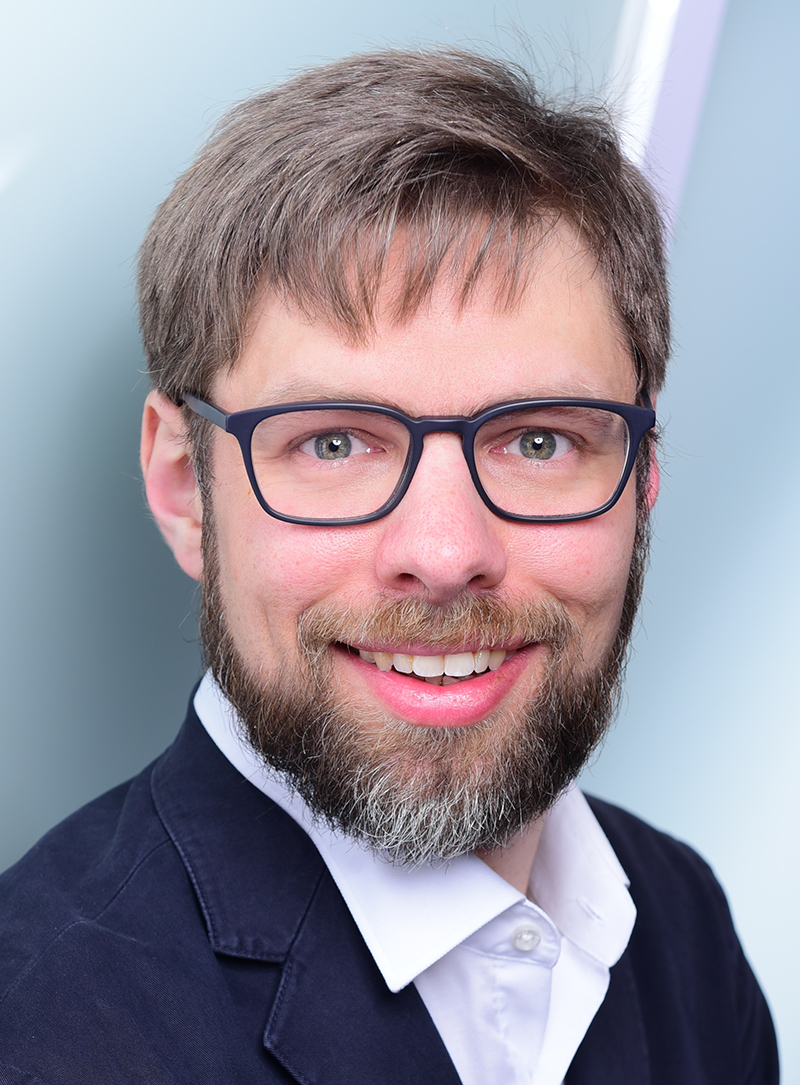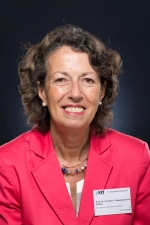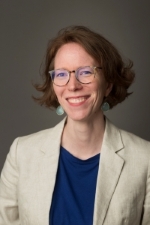
Jean Monnet Circle Seminar
The Jean Monnet Circle Seminar „How does the European Union work? Functions, institutions and ongoing challenges“ was established in 2008 within the framework of the Jean Monnet Program of the European Commission. The Ring Seminar is aimed equally at German and international students of all disciplines who wish to broaden their European competence. The seminar program addresses topics such as the socio-historical background of the EU, political, economic and legislative aspects of the unification process, legal issues of European integration and examines European institutions. It offers a look at identity and diversity within the EU, but also sheds light on the role of the EU in the world or the view of the EU from outside. These topics are presented by distinguished experts from various institutions.
The next Jean Monnet Circle Seminar will take place in the winter term 2026/27. More information will follow soon.
Listed below are the sessions of the Jean Monnet Circle Seminar from the last winter term (2025/26).
|
31.10.2025
|
Prof. Dr. Dirk Wentzel Europe seen from Outside: Europe and Its Role in the World
Abstract ⊻European integration is a success model without precedent. The biggest internal market in the world and the strength of the European currency signify that the EU is an “economic giant“(Henry Kissinger) that continues to grow. The attractiveness of the European integration for non-EU-members still is enormous as the list of countries – in the Balkans and in former states of the Soviet Union – willing to join the EU shows. An obvious and astonishing discrepancy exists between the interior view of the Europeans, who become more and more aware of their strength, and the exterior view on Europe, which in manifold respects turns out to be more critical. European trade policy is perceived as unfair and protectionist by developing countries; European agricultural policy is an exclusive example of regulatory policy. At the same time, the European’s commitment is perceived as too little regarding peace making and peace keeping missions in global trouble spots. The odds of European foreign policy are an essential characteristic for the outside. This Jean Monnet lecture aims at a clear outside view on Europe on the basis of academic insights. Economic dynamics and political perspectives need to be developed in equal measure to sustainably strengthen Europe’s importance.
Literature:
CV ⊻Dirk Wentzel has been Professor of Economics and European Economic Relations at Pforzheim University since 2003. In 2005 he received an EU-funded Jean Monnet Chair. He has been director of the European Business, Politics, and Culture summer school in collaboration with Pennsylvania State University since 2008. Since 2019, he is also the dean of the economics department. Dirk Wentzel studied economics at the University of Bonn. He earned his doctoral degree in 1994, with a dissertation in monetary theory at the University of Marburg. In 2001 he completed his habilitation in media economics, also at the University of Marburg. He has had multiple research stays abroad, including at Lomonosov Moscow State University, at New York University, and at Pennsylvania State University. He was a visiting professor and Humboldt fellow between 2000 and 2002 at Penn State, where he also founded a summer school in cooperation with the Smeal College of Business.
Dirk Wentzel was a scholarship student of the Adenauer Foundation, for which he serves as trustee today. He was awarded the Herbert Quandt Prize for his dissertation and received a research fellow-ship from the Humboldt Foundation between 2000 and 2002. In 2011 he was named President of the Karlsruhe-Pforzheim region for the Humboldt Foundation. In 2013 he became president of the Forschungsseminar Radein (www.radein.de). Dirk Wentzel has been the editor of Schriften zu Ordnungsfragen der Wirtschaft since 2010 and writes regularly for Börsen-Zeitung.
Competences Dirk Wentzel concentrates on institutional and regulatory economics in the tradition of Walter Eucken’s Freiburg School and Jean Monnet’s concept of European integration. In the course of completing his dissertation and habilitation (both supervised by Alfred Schüller) numerous articles of his have received accolades. As the new editor of Schriften zu Ordnungsfragen der Wirtschaft (founded by K. Paul Hensel), Wentzel is in charge of spreading regulatory policy opinions and supervising dissertations. Since being named Jean Monnet Professor for European Integration by the EU Commission in 2005, his publications have focused on European affairs. He has authored multiple books in addition to his monographs, some in collaboration with his colleagues. Since 2011 he has been a regular contributor to Börsen-Zeitung, concentrating on international economic policy and European integration. He also writes frequently for other national and regional newspapers. Since the beginning of the financial crisis in 2008 Dirk Wentzel has published numerous articles on stability policy and monetary constitution in Europe. He organized a large third-party EU project and in 2013 ran an international conference on European financial market architecture (with the proceedings published in a special 2013 volume of Kredit und Kapital). The proposals on state bankruptcy acts he developed with Hanno Beck have gained special attention among parliamentarians and legal professionals. In the future he will continue to devote time to stabilization policy in states with excessive debt. In recent research and seminars, Dirk Wentzel has put more emphasis on sport economics – a rich research area that brings together regulatory economics and game theory and is amenable to empirical study. His work covers the regulatory conditions in European sport markets, the rules for financial fair play and the application of financial market theory to sport and talent promotion. In addition to his other publications, Wentzel is completing an edited volume on basic questions of social market economy with regard to existing theory and to current and new fields of application. Dirk Wentzel makes every effort to link research and teaching. He currently supervises a huge variety bachelor’s and master’s theses.
Professional Activities
Contact: dirk.wentzel∂hs-pforzheim.de |
|
CANCELLED: 07.11.2025
|
Dr. Ingo Bott Rights and debates within the context of the European Convention on Human Rights
Abstract ⊻Human rights concern everyone. But where does the concept come from, how has it developed, and what forms does it take today? What can we rely on in the modern world, and what do we want to rely on? How do human rights influence our actions and thinking? What developments can we expect and how can we prepare for them? The workshop will address these questions on the basis of a number of landmark decisions on human rights and invites participants to engage in lively debate.
Literature and links:
CV ⊻Dr. Ingo Bott, lawyer and specialist attorney for criminal law and compliance, especially in sports, is founder and partner of Plan A - Kanzlei für Strafrecht. The law firm is based in Düsseldorf, Germany, but acts nationwide and internationally. Dr. Ingo Bott held numerous lectures and workshops in Germany and abroad. Among others, he taught European law in Russia and lectured on criminal and Human Rights matters in Peru, Venezuela and Mexico. He holds a Prof. h.c. and a Dr. h.c. of universities in Peru and represented the Council of Europe on several occasions as an expert on white collar crime. In addition to his legal work, Ingo Bott writes best-selling crime novels.
Contact: bott∂kanzleiplana.de |
| 14.11.2025
|
Julian Plottka Governance in Times of Multiple Crises: Efficient and Democratic?
Abstract ⊻The EU’s political system is often perceived as too complex, with confusing decision-making processes alienating its citizens. Playing a quiz on European politics, students are provided with an overview of the most important EU institutions to show that EU governance is not that complex as widely perceived. In group work, participants learn about the structure, internal functioning and competences of the European Parliament, the European Commission, the Council of the EU and the European Council. They are then introduced supranational decision-making at the example of the ordinary legislative procedure and to intergovernmental decision-making in the area of Common Foreign and Security Policy. The two cases illustrate how different processes of EU governance are, depending on the policy area. Building on this, students discuss whether these decision-making processes are effective and/or democratic. Is the EU able to master crises with these processes or are they not efficient and democratic enough? CV ⊻Julian Plottka is a Research Associate at the University of Passau and at the Rheinische Friedrich-Wilhelms-Universität Bonn. Before joining the universities, he was a Senior Researche at the Institut für Europäische Politik in Berlin. He has studied political science at the University of Potsdam, Universitet i Bergen and the Free University Berlin. His research covers reforms of the EU political system, its legitimacy, inclusing the European Citizens' Initiative, and EU foreign policy with a special focus on the EU's relations with Central Asia. Mr. Plottka has managed a number of research projects, inclusing the "Study on Strenghtening the Democratic Legitimacy of the EU", the "Study on the European added Value of the European Citizens' Initiative" and the project "The Relaunch of Europe. Mapping Member State Reform Interests". He is part of the Jean Monnet Network The EU and the EEU: Between Conflict and Competition, Convergence and Cooperation".
For his publications, contact details and more information see here: https://www.politik-soziologie.uni-bonn.de/de/personal/plottka-julian
Contact: julian.plottka∂uni-passau.de |
21.11.2025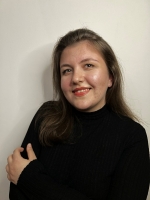 |
Gabriela Pancheva Gender & LGBTIQ Equality in the European Union: Concepts, Mechanisms, and Contestations
Abstract ⊻Gender equality and the protection of LGBTQ+ rights are part of the European Union’s legal and policy framework. These commitments are reflected in treaties, charters, and secondary legislation. This session examines the concepts of equality and gender, considering their relevance to broader equality debates and distinguishing between sex and gender as analytical categories. Key achievements in women’s and LGBTQ+ rights provide context for understanding how equality has been addressed at the EU level.
Literature:
CV ⊻Gabriela Pancheva is a research fellow in the project "Affective Contestation: Dynamics of a Contested Emotional Politics in European Migration Policy" at the Chair of International Security Policy at Zeppelin University. She holds an MA in Peace and Conflict Studies from Otto von Guericke University Magdeburg (2024). Her research interests include political and social discourse on gender, LGBTQ+, and reproductive rights in Europe, with a particular focus on Bulgaria, and how narratives shape public perception, policy debates, and societal attitudes. |
|
CANCELLED: 28.11.2025
|
Prof. Dr. Caroline Y. Robertson-von Trotha
Europe in Times of Change: Between the „Glocal“ and the „Global“
Abstract ⊻In the course of globalization and internationalization, people of different cultures are characteristic for modern European societies. Only meeting with the cultural “other” raises awareness for the own cultural identity, for cultural similarities and differences. Accepting other cultures presumes openness for cultural dialogue on the one hand. On the other hand it implies limits of tolerance towards values and norms of foreign cultures that can be in extreme contradiction with existing values and norms of the receiving country. Due to the multicultural composition of European cities, with migrants now living there in the third and even fourth generation, the very concept of “other” has to be questioned.
Where European cultural dialogue is constrained it is necessary to question the legal framework of living together. The receiving country can make specific integration offers, such as language courses. Cultural dialogue is only possible if the host society is open regarding other cultures and if migrants are willing to accept the major underlying democratic conditions in the receiving country. Integration in following generations is dependent on many factors, particularly on inclusive practices, levels of education and attitudes of the first generation towards their new home.
Regarding the development of European societies this seminar focuses on:
The seminar aims to challenge the sociopolitical discourse regarding identity and diversity in Europe.
Literature:
CV ⊻Prof. Dr. Caroline Y. Robertson-von Trotha, born in 1951, is Founding Director of the ZAK | Centre for Cultural and General Studies at the Karlsruhe Institute of Technology (KIT) in Germany, and Professor of Sociology and Cultural Studies. Her research interests include cultural change and globalisation, internationalisation and integration, foreign cultural and educational policy, and the theory and practice of public science. She is coordinator of the German network of the Anna Lindh Foundation (ALF), chairwoman of the Academic Council on Culture and Foreign Policy (WIKA) at ifa (Institut für Auslandsbeziehungen), and member of its advisory board. She is also a member of the advisory council of the Institute for Cultural Policy of the Association of Cultural Policy (Bonn) and spokeswoman of the scientific committee (Kleiner Konvent) of the Schader Foundation (Darmstadt). She was member of the Culture Committee of the German UNESCO Commission. Caroline Y. Robertson-von Trotha is the editor of numerous academic books and publication series. She is initiator and scientific convenor of a variety of teaching formats and public science events. |
|
SUBSTITUTE: 28.11.2025
|
Dr. Igor Krstic
National and European Identities in Film
Abstract ⊻National identity is a fundamentally European concept and has existed for as long as the idea of the nation-state itself. But does a distinctly European identity also exist? And if so, how is this notion represented in contemporary European cinema?
This presentation introduces key cultural studies approaches to identity before examining how films negotiate ideas of national, European and/or transnational identities across contemporary comedies, historical dramas, and television series. CV ⊻Dr. Igor Krstić (b. 1973) was born in Yugoslavia and grew up as the son of immigrant parents in Nürtingen, Baden-Württemberg. He studied German Studies and Comparative Literature at the University of Tübingen and later earned a Master of Arts in Film and Television Studies at the University of Amsterdam. He received his Ph.D. with a dissertation on the representation of slums in world cinema (published in 2016 by Edinburgh University Press) and has since worked as a research associate, DAAD postdoctoral fellow, and lecturer in film, media, and cultural studies at the University of Mannheim, the University of Reading (UK), and the University of Stuttgart. Contact: igor.krstic∂kit.edu
|
|
|
|
|
05.12.2025
|
Dr. Carolyn Moser European Defense Policy
AbstractIn the wake of Russia’s aggression against Ukraine, security and defense have moved to the forefront of European and global agendas. As geopolitical tensions reshape the international order, there is no better time to explore the law, policy, and practice of the European Union’s (EU) security and defense—a field with profound implications for the future of the European continent and beyond. This interdisciplinary seminar invites students on a journey into the heart of EU security and defense. Together, we will unpack the legal, political, and institutional frameworks that define this critical policy area, with a special focus on the EU’s Common Security and Defense Policy (CSDP). Through a blend of theoretical analysis and real-world case studies, students will:
By the end of the course, students will not only understand the origins, evolution, and unique features of EU security and defense but also develop the analytical tools to navigate its complexities. Literature
CVDr Carolyn Moser specialises in international and EU law and governance. Her particular focus is on security and defence, and she is also an expert on Franco-German relations. Since 2022, she has led the independent research group ENSURE (European Security Revisited) at the Max Planck Institute for Comparative Public Law and International Law in Heidelberg. During the 2023/24 academic year, she held the Alfred Grosser Chair at Sciences Po in Paris. Previously, she has also held visiting positions at Basel University, the EUI in Fiesole, Lille Catholic University and LMU Munich, among others. Her work has been published in leading peer-reviewed journals, books, edited volumes and blogs, and she has received several awards and distinctions, including the Otto Hahn Medal from the Max Planck Society and the European Court of Auditors Award. Her research has also received funding from the Fritz Thyssen Foundation, the German government and the Max Planck Society. Dr Moser’s interdisciplinary expertise is in demand beyond academia at institutions such as the German Bundestag, the European Parliament and the European Commission, as well as in print, television, and radio media. She studied law and political science at Sciences Po Paris and the Fletcher School of Law and Diplomacy at Tufts University in the US, earning her doctorate from Utrecht University. |
|
12.12.2025
|
PD Dr. Dr. Jesús Muñoz Morcillo Europe and the Stars – Images, Narratives, and the Embodiment of a Cultural Vision
Abstract ⊻The idea of Europe as a cultural entity is the result of manifold literary and visual traditions that suggest a civilizing movement from Orient to Occident, from the sunrise to the sunset, from the origin of things to the claim of perfection. An etiological myth about an abducted Asian Princess gave Europe its name, the exile of the Trojan warrior Aeneas that founded Rome gave Europe its political identity, and an Asian prophet called Jesus gave Europe its religion. Consider the European flag: A crown of twelve stars against a sunset-blue sky evokes a rich symbolism that connects Greek and Christian traditions - from Ariadne's wedding crown (constellation Corona Borealis) to the star crown of the Immaculate. In this seminar, we will focus on canonical - and often ambiguous - narratives and pieces of art that still shape our awareness of Europe in cultural and political terms. We will discuss how strong these visual and literary traditions are, which artifacts and symbols embody them, and to what extent they have changed their meaning since the birth of the European project.
Literature:
CV ⊻Jesús Muñoz Morcillo is a classical philologist, art historian, researcher and lecturer at the Karlsruhe Institute of Technology (KIT). He studied in Salamanca, Würzburg and Karlsruhe and, thanks to a grant from the Volkswagen Foundation, he was a fellow at the Getty Research Institute (GRI) in Los Angeles (September 2019 to June 2020). From March 2019 until his posting to the USA, he was acting spokesman for the ZAK | Center for Cultural and General Studies at KIT. His most recent publications include the edited volume "Genealogy of Popular Science. From Ancient Ecphrasis to Virtual Reality" (2020, transcript ed. With Caroline Y. Robertson-von Trotha) and the monograph "La ékfrasis griega, de la Antigüedad a Bizancio" (Peter Lang, in press). His research currently focuses on the reception of ancient descriptions and their influence on early modern visual cultures in art, literature, and science.
Contact: jesus.munozmorcillo∂kit.edu |
- Participation in all lectures of the Circle Seminar is obligatory.
- 2 credits can be received by regular active participation and submitting a learning protocol for one of the lectures (3 pages, about 8.200 characters including spaces).
- Credits (3-6 CP) can be received through a paper which deepens the topic of one lecture (in agreement with the respective lecturer: Please discuss the question of your essay directly with the lecturer whose topic you would like to give an essay on):
- 3 credits: Regular active participation and written essay (6 pages, about 16.400 characters including spaces)
- 4 credits: Regular active participation and written essay (9-10 pages, about 24.000-30.000 characters including spaces)
- 5 credits: Regular active participation and written essay (11-14 pages, about 32.000-40.000 characters including spaces)
- 6 credits: Regular active participation and written essay (15 – 18 pages, about 41.000-50.000 characters including spaces).
Information regarding how to write a seminar paper at FORUM, style and citation rules and an anti-plagiarism declaration can be found here.

